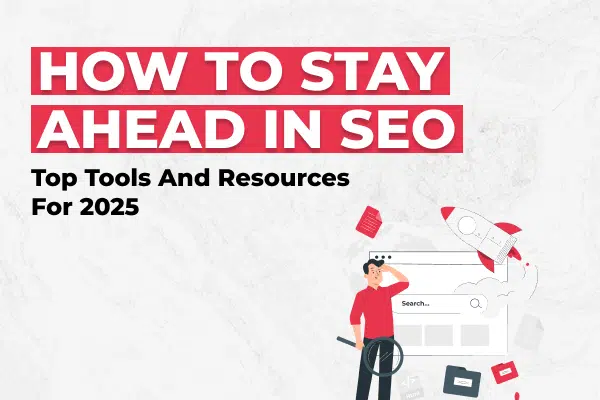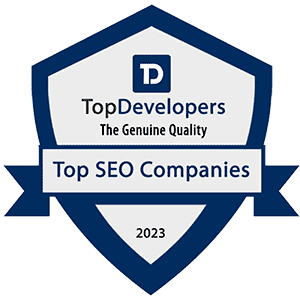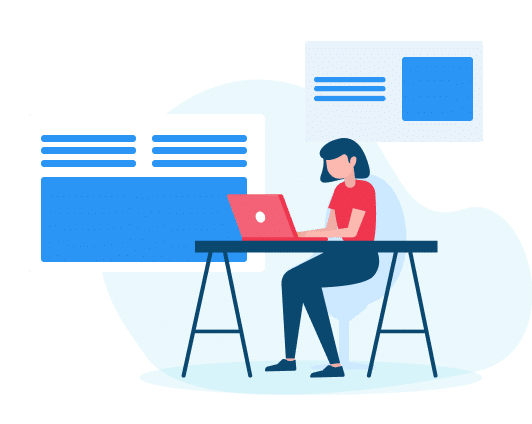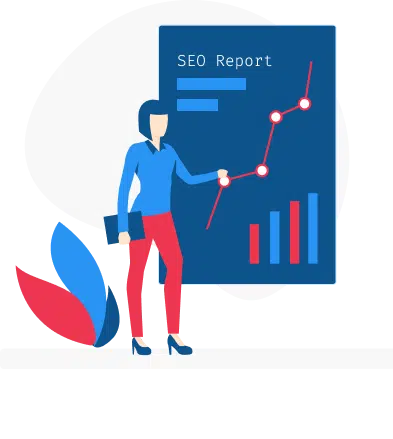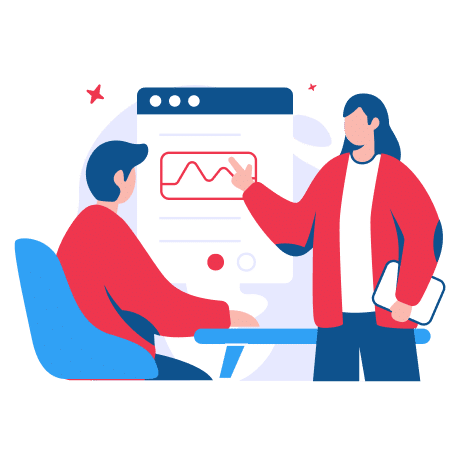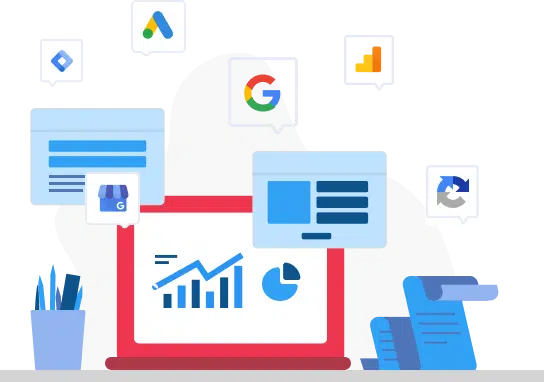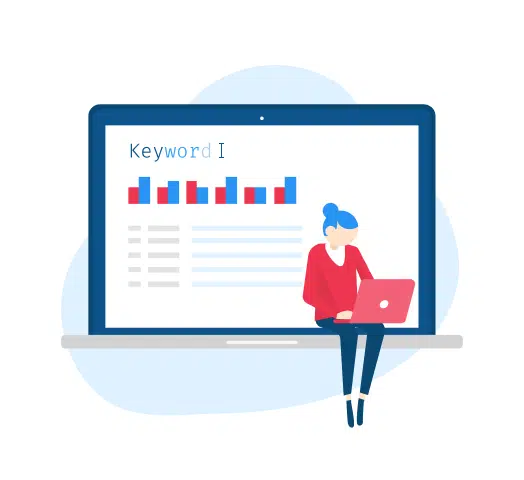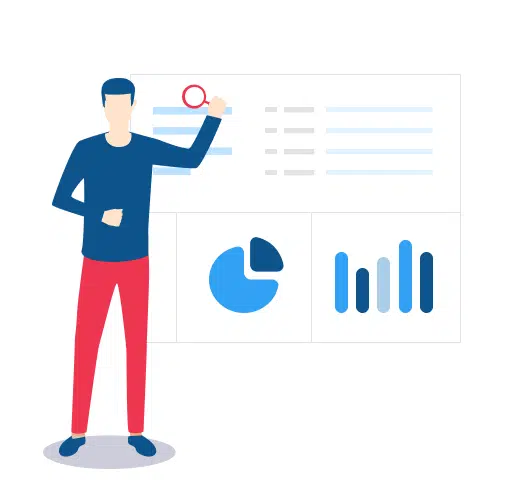Content
- Introduction
- Understanding SEO Basics
- The Role of AI in SEO
- Essential AI Tools for SEO
- Techniques to Enhance SEO Using AI
- Challenges and Considerations
- Ethical Considerations in AI-Generated Content
- Conclusion
Introduction
The world hasn’t even fully grasped the buzz of ChatGPT that DeepSeek entered the scene. The market chaos AI vs AI caused is a conversation for another day. But it’s impossible to deny that various Generative AI tools (like Google Gemini) are helping for brainstorming content ideas and optimizing them for better search engine visibility.
In other words, Artificial Intelligence (AI) is the new normal among Content Marketing and SEO services worldwide. Additionally, there are various other AI tools that SEO services and digital marketing companies use for rapid and real-time analysis.
SEO services in India and all over the globe need to have a thorough understanding of the pros and cons of Artificial Intelligence in content creation and marketing.
This blogpost is a navigational guide for businesses and individuals who want to know how they can use AI for Search Engine Optimization (SEO) and rank better on Google and other search engines.
Understanding SEO Basics
What Is SEO? What Are Its Dimensions?
Search Engine Optimization (SEO) is basically a set of (flexible and experimental) strategies that marketers use to rank websites and landing pages high on search engine results pages (SERPs).
Technically, SEO is the practice of optimizing the content, speed and user experience of the webpage, and building internal and external link strategy to enhance the authority and the trustworthiness of a particular website/webpage in specific domains. As a result, search engines (like Bing, Google, Duckduckgo, etc.) pick this webpage/website as a reliable and relevant answer to the related search queries and intents.
It’s crucial for businesses to rank on page 1 of the SERPs because less than 1% of search engine users ever go to page 2 of the search results.
SEO has three major key dimensions:
- On-page SEO: This includes the use of relevant keywords, meta tags, header tags, and high-quality content to optimize individual webpages.
- Off-page SEO: This focuses on building a website’s reputation and authority through quality backlinks and social media engagement.
- Technical SEO: This includes optimizing site speed, mobile-friendliness, and URL structure of webpages to ensure smooth and delightful visitor experience.
Importance of Keyword Research and Content Optimization
The foundation of a good SEO practice is keyword research and implementation strategy (with content calendar). First, identify the keywords and then create content that aligns with the search intent of your target audience.
Content optimization ensures that your articles, blogs, and web pages are structured in a way that appeals to both users and search engines.
The Role of AI in SEO
AI is revolutionizing how SEO is approached, providing tools and insights that were previously unimaginable.
How AI is Transforming Traditional SEO Practices?
AI algorithms can analyze vast amounts of data quickly, uncovering patterns and trends that human analysts might miss. This capability allows for more informed decision-making regarding keyword selection, content creation, and user engagement strategies.
Benefits of Integrating AI into SEO Strategies
- Enhanced Data Analysis: AI can process and analyze data from various sources, providing actionable insights into user behavior and preferences.
- Improved Content Creation: AI tools can assist in generating high-quality content tailored to specific audiences, ensuring that it is optimized for search engines.
- Advanced User Experience Personalization: AI can help create personalized experiences for users by predicting their needs based on their behavior, thereby increasing engagement and retention.
Essential AI Tools for SEO
To harness the power of AI in your SEO efforts, several tools can be invaluable.
AI-Powered Keyword Research Tools
Keyword research tools are essential for identifying the terms and phrases that potential customers are using.
- SEMrush: This all-in-one tool uses AI to provide keyword suggestions, analyze competitors, and assess keyword difficulty.
- Ahrefs: Known for its robust backlink analysis, Ahrefs also offers powerful keyword research features. Its AI-driven suggestions can help discover new content opportunities.
- Moz: Moz provides valuable insights into keyword performance with the “Keyword Explorer” feature. SEO marketing teams can use this tool to figure out top-priority keywords based on search volume and difficulty.
Content Generation and Optimization Tools
Creating engaging and SEO-friendly content is crucial for ranking well.
- Jasper: This AI writing assistant helps generate high-quality content based on prompts. It can produce blog posts, social media content, and more while ensuring that it is optimized for SEO.
- Writesonic: Similar to Jasper, Writesonic uses AI to create various types of content quickly. It can also generate product descriptions, landing pages, and ad copy, all while maintaining SEO best practices.
- SurferSEO: This tool analyzes top-performing pages for specific keywords, providing guidelines on how to optimize your content effectively. It combines data-driven insights with practical recommendations.
Analytics and Reporting Tools
Monitoring performance is vital for any SEO strategy.
- Google Analytics: This free tool provides comprehensive insights into website traffic, user behavior, and conversion tracking. It can help identify which SEO efforts are driving traffic and conversions.
- Google Looker Studio: Google Looker Studio allows you to visualize data from various sources, including Google Analytics, and create custom reports. Its integration with AI can help highlight trends and anomalies in your SEO performance.
| Essential AI-Powered Tools For SEO | ||
|---|---|---|
| Keyword Research | Content Optimization | Analytics & Reporting |
| SEMrush AI-powered suggestions, competition analysis |
Jasper AI writing assistant for various content types |
Google Analytics Website traffic, user behavior, conversions |
| Ahrefs Keyword research with backlink analysis |
Writesonic AI content generation with SEO best practices |
Google Looker Studio Data visualization and custom reports with AI |
| Moz Keyword Explore Keyword performance insights |
SurferSEO Content optimization based on top-performing pages |
|
Techniques to Enhance SEO Using AI
Let’s break down the techniques with concise explanations and visuals
Automating Routine SEO Tasks
Site Audits and Monitoring
AI can automatically check for technical issues, broken links, and areas for improvement. This ensures that your site remains optimized and compliant with search engine guidelines.
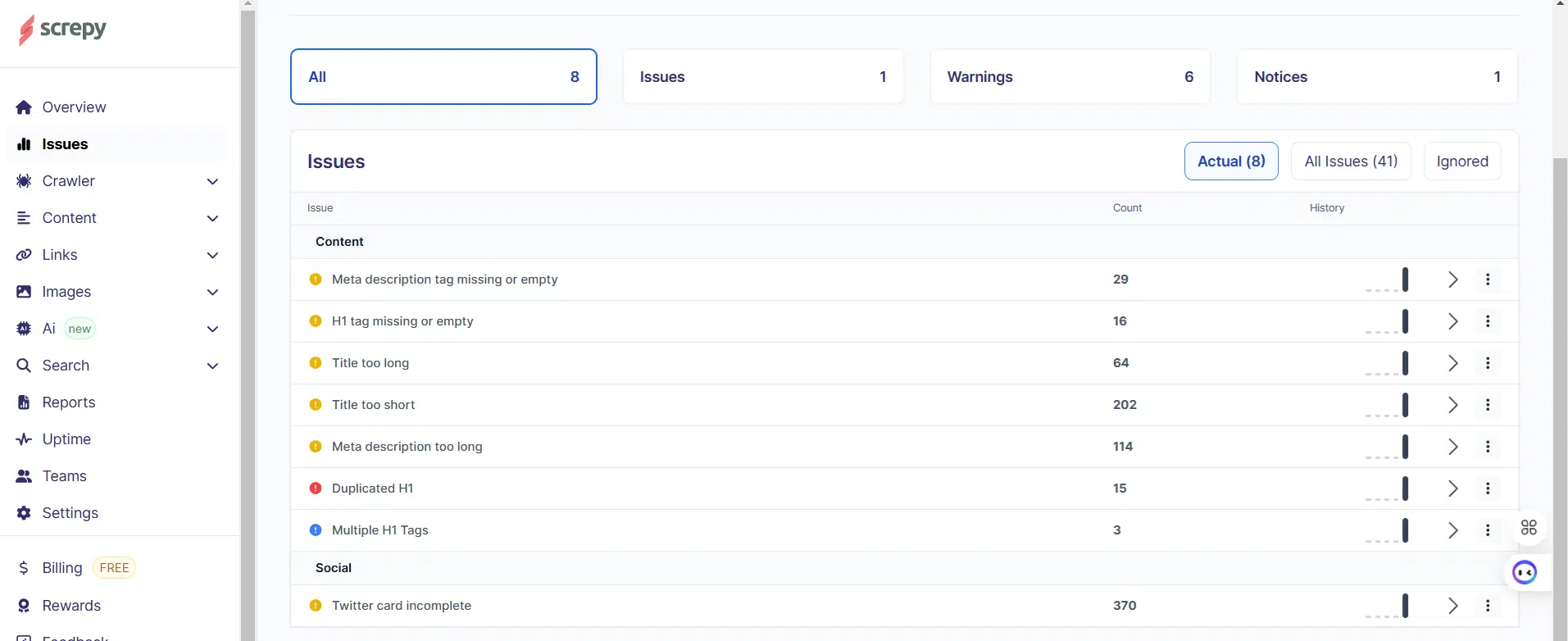
Backlink Analysis
AI helps monitor your backlinks and identify harmful ones. Tools like Ahrefs and Moz offer automated backlink analysis features that provide alerts on changes in your backlink profile.
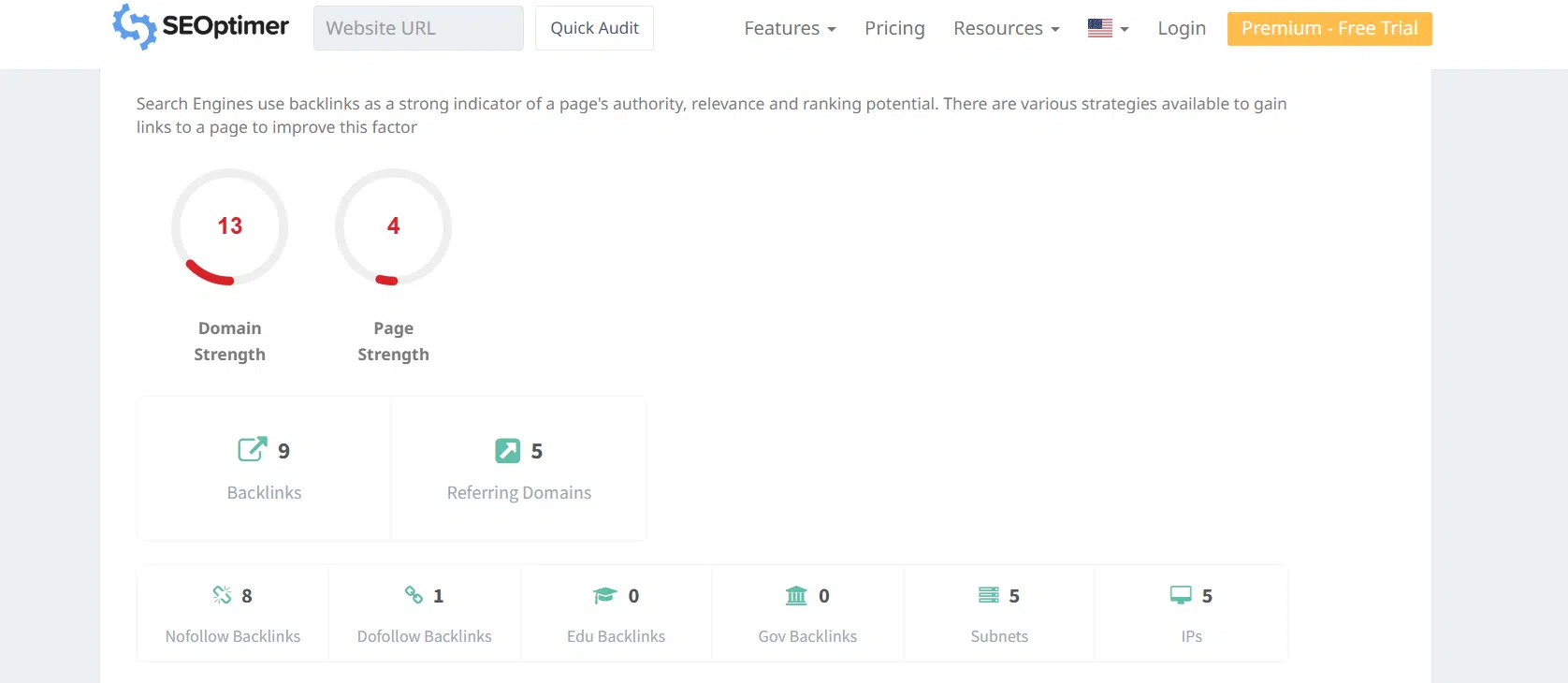
Personalizing User Experience
Personalization is a key driver of user engagement, and AI can help tailor experiences to individual users.
AI-Driven Recommendations
AI algorithms can suggest relevant content, products, or services based on the analysis of user behavior to visitors, enhancing their experience on your site.
For instance, e-commerce sites can use AI to recommend products based on past purchases or browsing history.
Using Chatbots for Engagement
AI-powered chatbots engage users, answer questions, and guide them to relevant information in real time. This improves user experience and keeps visitors hooked on the site, thereby reducing bounce rates.
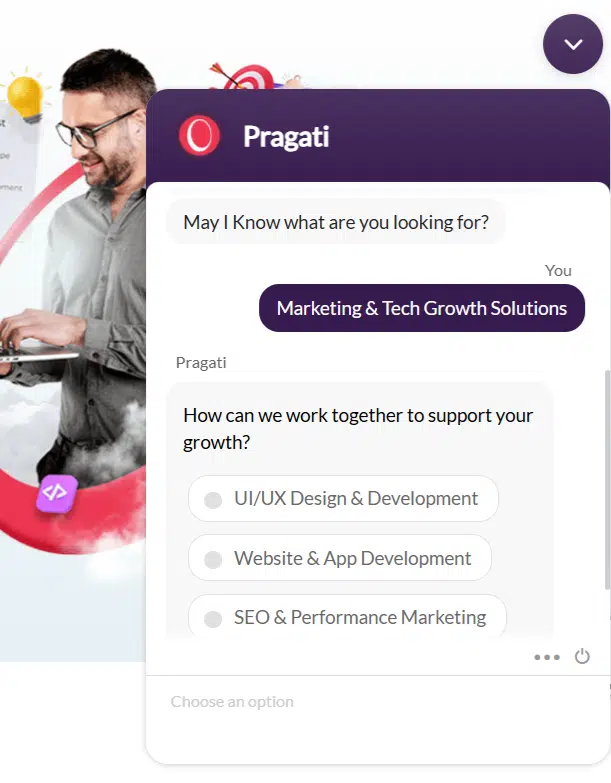
Predictive SEO Strategies
Forecasting Trends and User Behavior
AI analyzes historical data to predict emerging trends, helping businesses to adapt their content strategies proactively.
Adapting Content Strategies Based on Predictions
With insights from predictive analytics, the business can tailor your content marketing efforts to align with anticipated user needs.
Challenges and Considerations
While AI offers numerous benefits for SEO, there are challenges and considerations to keep in mind.
Potential Pitfalls of Relying Too Heavily on AI
- Loss of Human Touch: Over-reliance on AI-generated content can lead to a lack of originality and creativity. It’s essential to maintain a balance between automation and human input to ensure that content resonates with audiences.
- Quality Control: While AI tools can produce content quickly, the quality may vary. Regularly reviewing and editing AI-generated content is crucial to maintain high standards.
Balancing Automation with Human Creativity
Combining AI capabilities with human creativity can yield the best results. Use AI for data analysis and repetitive tasks while allowing human writers and strategists to inject creativity and brand voice into the content.
Ethical Considerations in AI-Generated Content
SEO companies in Mumbai and all around the world are using AI extensively for content creation – be it for the website or social media. However, the integrity and trustworthiness of these contents are always in question.
Remember, AI is still in its infancy and a lot of Large Language Models of Generative AI chatbots, like Gemini, do issue warnings to fact check their responses.
Businesses and marketing teams must take some precautionary actions while using artificial intelligence for faster SEO analytics and content creation so that they can maintain the audience’s trust.
Here are some key ethical considerations and best practices to ensure responsible AI usage:
1. Transparency in AI Usage
Disclosure of AI Involvement: Clearly indicate when content has been generated or assisted by AI. For example, a blog post or article might include a note such as, “This article was co-authored with the assistance of AI technology.”
Clarifying AI Limitations: Inform users about the capabilities and limitations of the AI tools used. For instance, if an AI tool is employed for generating product descriptions, specify that while the content is optimized, it may not capture all nuances of the product.
2. Maintaining Content Integrity
Regular Quality Reviews: Implement a process for human editors to review and refine AI-generated content before publication. This ensures that the content meets quality standards and aligns with brand voice.
Fact-Checking: Always verify the accuracy of information produced by AI tools. Incorrect data or misinformation can erode trust and damage credibility.
3. Ethical Content Creation
Avoiding Misinformation: Ensure that AI-generated content does not propagate false information or harmful stereotypes. Set guidelines for AI training data to minimize biases and ensure ethical content generation.
Respecting Copyright and Plagiarism Policies: When using AI tools for content creation, ensure that they do not inadvertently replicate copyrighted material. Use plagiarism detection tools to check for originality.
4. Continuous Monitoring and Improvement
Feedback Loops: Establish mechanisms for users to provide feedback on AI-generated content. This can help identify areas for improvement and ensure that the content remains relevant and useful.
Regular Audits: Conduct periodic audits of AI-generated content and processes to assess compliance with ethical standards and make necessary adjustments.
Conclusion
AI is transforming SEO. By integrating AI tools and techniques, you can analyze data, create optimized content, and personalize user experiences more effectively. However, marketing teams must balance automation with human creativity and ethics for the best results.
Businesses can leverage the best SEO services in Mumbai to help them use AI tools and strategies in the right way. With the right team, they can achieve their search engine ranking calls; moreover, can attract potential customers organically through the internet.
Frequently Ask Questions
Should Businesses Use AI-Generated Content to Boost SEO?
It’s okay to use Artificial Intelligence (AI) for content optimization; however, with caution. It’s crucial that the marketing teams are mindful before posting AI-generated content. They must fact check the content, and edit it to enhance the relevance, readability, and scannability of the content before posting it.
The bottom line is that the content that is finalized for posting should be created by people, for the people.
Can Google Detect AI-Generated Content?
Yes, but it’s a bit complicated. Google analyses content on the basis of its relevance, readability, and whether or not it aligns with the intent of the search.
In other words, search engines (like Google and Bing) prioritize high-quality and factually correct information. If you’re providing valuable and accurate content, Google will not penalize it, even if you’ve used AI for ideation, optimization, or fixing grammatical errors.
At the end of the day, the content must follow the E-A-T principles of content writing, which states that the content should prioritize Expertise, Authoritativeness, and Trustworthiness.
How Can Small Businesses with Limited Budgets Leverage AI for SEO?
Small businesses can leverage AI for SEO even with limited budgets. Many free AI tools are available for keyword research, content optimization, and basic analytics.
Focusing on specific areas where AI can have the biggest impact, such as keyword research or content optimization, can be a cost-effective approach.
Additionally, outsourcing specific SEO tasks to companies that utilize AI tools can be a viable option for small businesses looking to maximize their resources.
Is AI going to Replace SEO Professionals?
This is a common concern, but the answer is likely no. While AI can automate many tasks and provide valuable insights, it can’t replace the human element of SEO.
SEO professionals bring creativity, strategic thinking, and critical analysis to the table, which are essential for developing and implementing effective SEO strategies. AI should be seen as a powerful tool to augment and enhance the work of SEO professionals, not replace them entirely.
What Is the Future of AI in SEO?
The future of AI in SEO is full of possibilities. We can expect to see even more personalized search results and content recommendations driven by AI. AI tools will likely become more sophisticated in generating high-quality, creative content.
Predictive SEO, where AI is used to anticipate future search trends and user behavior, is another exciting area of development.
Finally, we can anticipate greater integration of AI across various marketing channels, leading to a more holistic and effective approach to digital marketing.


